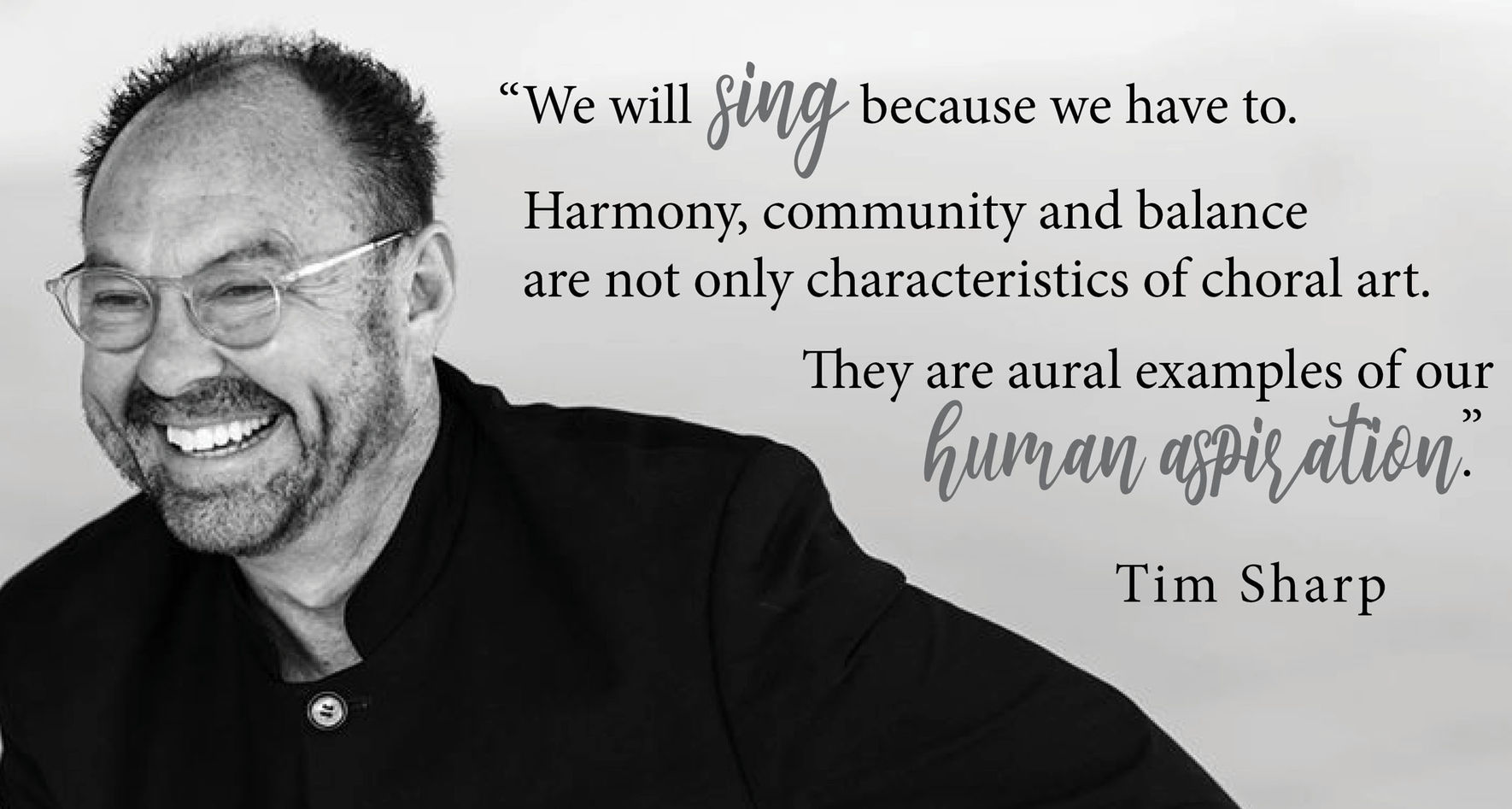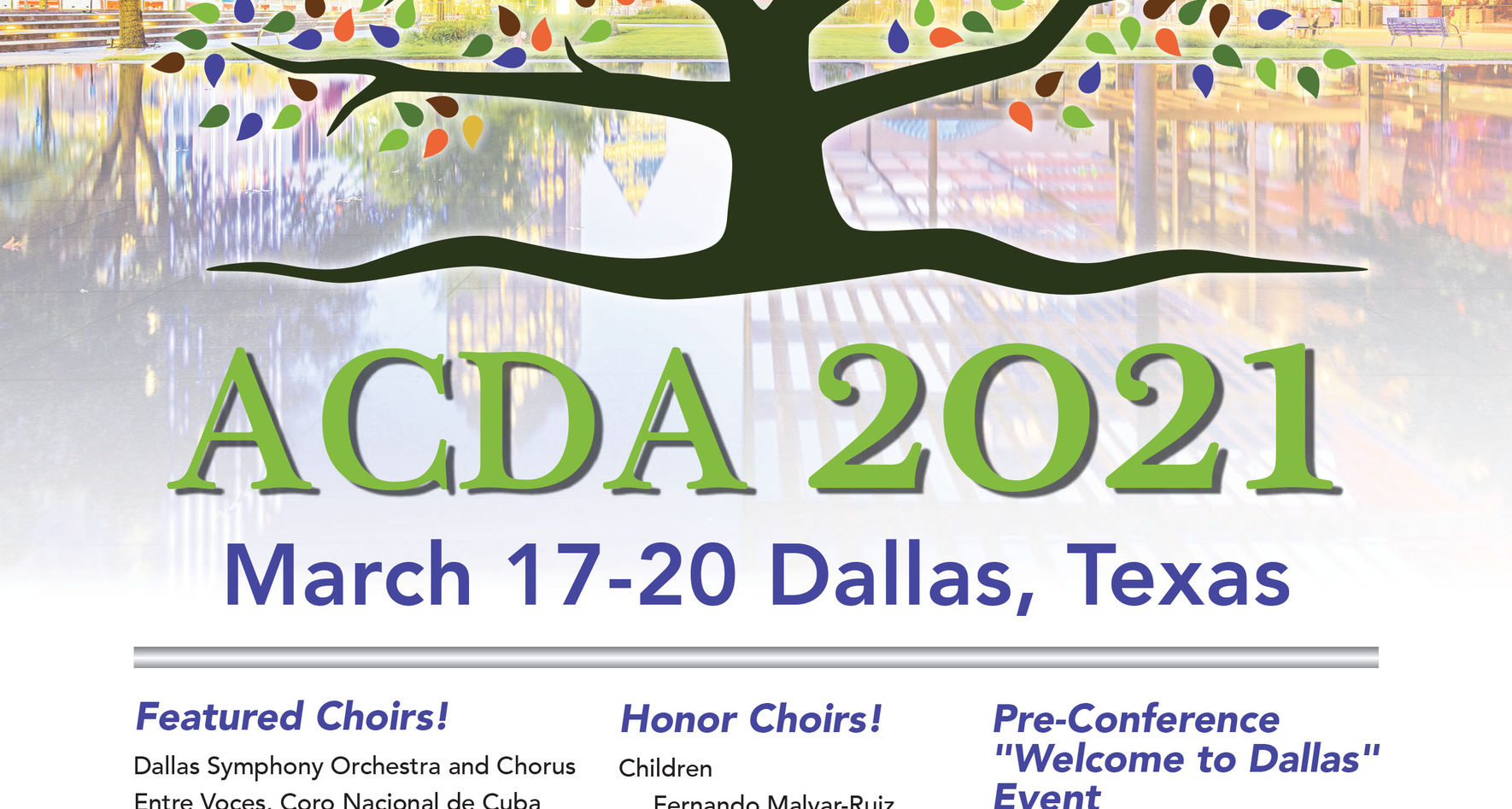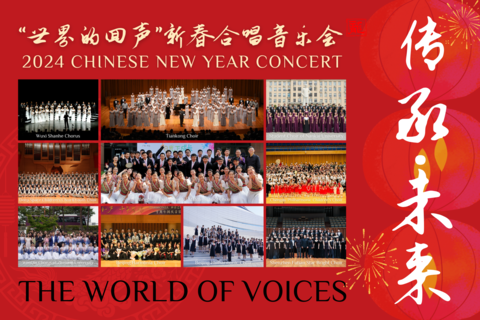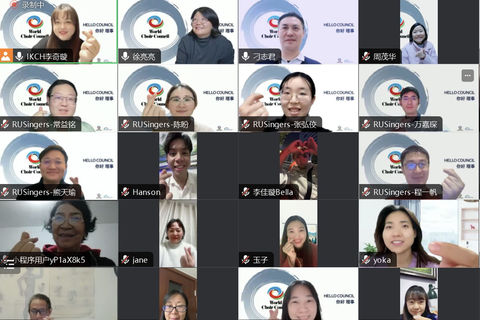
“We will come out of this period even stronger than we were before”
Interview with Tim Sharp, Executive Director of the ACDA/Member of World Choir Council
The Corona Pandemic has now been keeping the world in suspense for months and has led to a standstill in public life. Thousands of people have already become infected with covid-19. Among them are our colleague and long-time friend Tim Sharp, member of the World Choir Council and Executive Director of the ACDA, and his wife Jane. Tim knows only too well the restrictions on choir life caused by the crisis. In an interview with INTERKULTUR he explains his experiences with the current situation, his expectations and hopes for the future of choral music.
A few weeks ago, you shared a post on Facebook dealing with your personal battle against COVID-19, which attracted international attention. So, first of all: How are you doing today? How is your family?
Thank you for your kindness in asking this question. Both my wife, Jane, and I had covid-19. She had to be in the hospital for 10 days, while I was not sick enough myself to be admitted to the hospital. Jane contracted pneumonia, but did not have to go on a ventilator. My symptoms were the same as hers: high temperatures, body aches, headaches, dry cough, and the loss of the sense of taste and smell.
I am humbled and grateful to say that we both recovered from the virus, and we are now doing much better. We know first-hand how serious and painful this virus can be to our health, and we are in great reverence for the care of doctors, nurses, and other caregivers. We have learned a lot about giving control over to others, and about doing our part to help others recover.
The current crisis caused by the pandemic and the related restrictions affect all areas of our lives. How is the ACDA as an organization affected by this? What difficulties, but perhaps also opportunities, have arisen for you?
I wrote recently in The Washington Post about this topic. Most immediate are the logistical challenges. Choral music is, by definition, a group activity.
It is not clear when we will be able to gather again. In my capacity as director of the American Choral Directors Association I facilitated a recent webinar on what science tells us about the future of singing: the medical experts we spoke to explained that speaking and singing produce aerosols that spread the virus, and that cannot be fully contained by masks.
The leaders and singers in the choral community responded to these revelations with passion and a tremendous sense of loss. Yet even now, we’ve been able to learn from each other’s individual voices.
We have worked with a software company to develop a program that allows singers to sing their part of a choral score into their computer or phone; the software evaluates whether or not they are singing the right pitch and rhythm. As choral directors, we can assess their progress and speak directly to the spots where they need help. We are also creating "virtual choirs" where individual singers record their part in a video, and directors edit those files into an overall mix. While the result isn’t a substitute for real choirs, these programs do allow us to hear each singer individually, and to coach musicians on how they fit into the overall performance even when they can’t hear their fellow singers.
But there is a more emotional question before us: How can we find the spirit to sing in times like this?
Over the past 12 years, I have witnessed the steady growth of choral singing in the United States, not just in our educational system, but also in refugee choirs, homeless choirs, hospice choirs, prison choirs, Alzheimer’s choirs, and a plethora of other unlikely places. Their example reminds me that singing gives something not just to the listener, but to the singer as well. Singing requires us to use our bodies and connects us directly to our emotional lives. Every aspect of the singing process is visceral. And while the experience of singing is highly individual, choral singing blends and balances those individuals sounds into a community.
Next March the ACDA National Conference will take place in Dallas, Texas. Who can join the conference?
We are planning our National Conference right now, and we are very excited about this event that happens every two years. Our ACDA National Conference will take place in March, 2021, in Dallas, Texas, a fantastic cultural city in the American Southwest. The date of the Conference is March 16-20, 2021, and Dr. Andre Thomas is the Chair of our Planning Committee for this event. We will feature over fifty choirs from the USA in every category of choral music: children, youth, college and university, community, and more. We welcome attendees from the United States and guests from around the world to our conferences. Registration for the Conference will begin in October of this year, and will be available at: www.acda.org.
What are the main topics in 2021? Can you already unveil some of its special highlights?
We will celebrate choral diversity in this particular conference, and we will welcome visiting choirs from Cuba, Taiwan, and other international locations. Of course, since covid-19 has had such a devastating impact on our communities and on the economy, we will also turn our attention to the topic of finding meaning and relevance for the choral art in the age of the pandemic. But, first and foremost, we will celebrate the human choral expression through our performances and sharing of our resources.
Will there be any changes in terms of subjects or organization of the conference due to the current pandemic?
At this time, I am planning for various possibilities. Our greatest hope is that we are able to offer the Conference just as it is planned. But of course, I will be working with our Committee and our staff at ACDA for other possibilities if we find that we have to make adjustments. I will be going to Dallas next week to look at other ways of presenting our conference, if there is a need to make an adjustment. We are naturally looking at ways of offering virtual presentations, but truthfully, we were already planning on exploring ways that we could present some of our programming online. The current situation simply added more reasons for me to explore virtual presentations for the future more intently. We all pray that we will find ways of working in community as we continue to look toward a vaccine and other treatments that can mitigate the risks involved in people gathering together. We share this hope with all of humanity at this time.
How do you estimate the effects of the current crisis on your national choir scene? Will digital space/tools continue to become more attractive for choral work or is it rather a current means to an end?
The effects have simply been devastating to all of us in the choral world, and the USA is just as devastated as other countries. We are finding great hope in our membership and in each other as we create new online tools for rehearsing, for ear-training, for singing together online, and for communicating. We hope to use these tools even when we return to singing together again. I feel strongly that we will come out of this period even stronger than we were before, and we will have learned how to teach and communicate with new tools that are appropriate for choral music education, performance, composition, and advocacy. I am so proud of the choral community for their resilience, as well as for their empathy for each other and for the singers we have the joy of working with.




